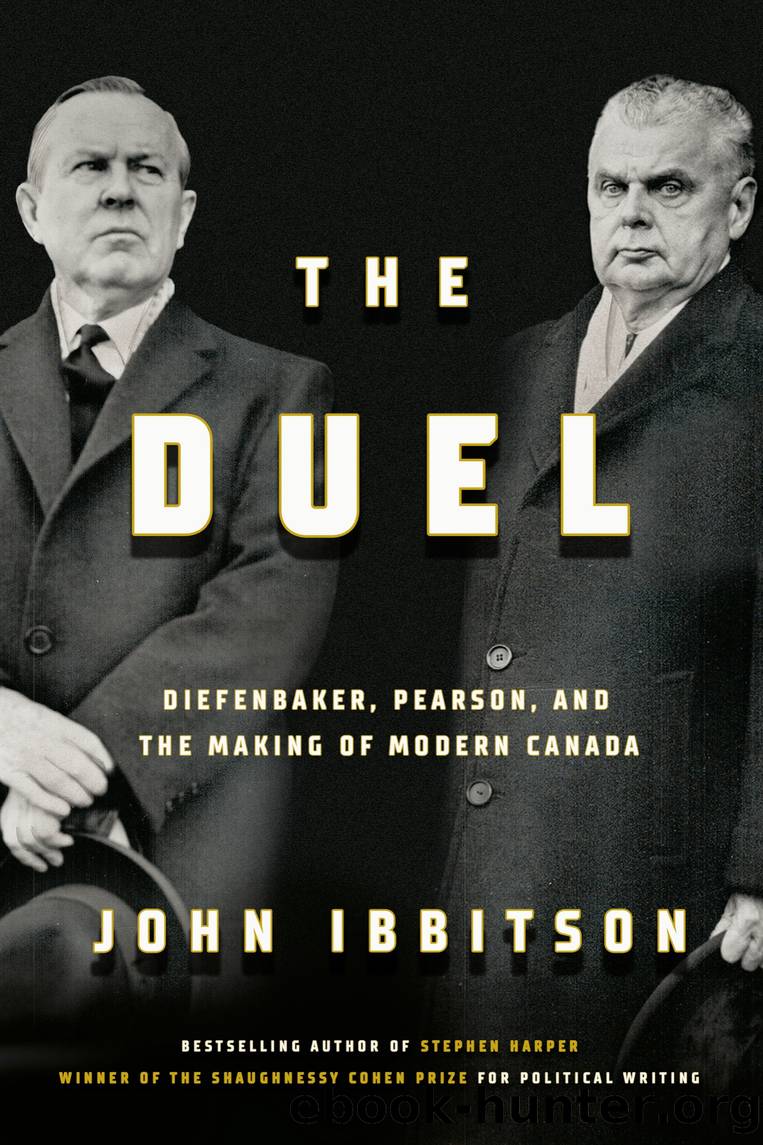The Duel by John Ibbitson

Author:John Ibbitson [Ibbitson, John]
Language: eng
Format: epub
Publisher: McClelland & Stewart
Published: 2023-10-10T00:00:00+00:00
VII
On June 18, 1990, Nelson Mandela stood before the combined houses of Parliament to thank the people of Canada. He had been free for only four months, after spending twenty-seven years in prison for his leading role in opposing apartheid in South Africa. But apartheid was finally crumbling, as President F.W. de Klerk and his former prisoner had begun the protracted dance that would lead to free elections four years later and to Mandela becoming South Africaâs first Black president. Prime Minister Brian Mulroney didnât try to hide his pride as Mandela thanked Canada for its leadership in rallying the world to condemn the suppression of Black South Africans. Joe Clark, who, as Mulroneyâs secretary of state for external affairs, had also pushed to isolate South Africa despite resistance from Ronald Reagan in the United States and Margaret Thatcher in Britain, was every bit as proud. Three decades before, as young conservative activists, Mulroney and Clark had been inspired by the leadership of John Diefenbaker, who made Canada the first member of the âold Commonwealthââread âwhite Commonwealthââto confront the evil of apartheid.
Commonwealth leaders had agreed to meet in London in the first week of May 1960. Top of mind, though it was not even officially on the agenda, was the issue of South Africa, which was about to hold a referendum on becoming a republic. Everyone expected the white population, who alone were allowed to vote, to vote Yes. Black South Africans had no say in their future. With Elizabeth no longer South Africaâs queen, the new republic would have to apply for readmission to the Commonwealth. The white, developed nations were inclined to say yes to a country that had been a valuable ally in two world wars. But the newly independent African and Asian members were understandably determined to say no. The conflict threatened to tear the Commonwealth apart.
Whenever an intractable issue presented itself, Diefenbaker preferred to delay deciding, hoping that the passage of time would reveal a path forward. This was especially true of the South Africa question because his own government was split on the issue, with the secretary of state for external affairs and his secretary of cabinet on opposing sides. Diefenbakerâs foreign minister was Howard Green, whom the prime minister appointed after Sidney Smithâwho left his position as president of the University of Toronto to take on the taskâdied suddenly of a heart attack. Green was not a natural fit for External. He had never travelled to Washington and was so devout that he neither smoked nor drank nor worked on Sundays. But Green was loyal, capableâas public works minister, he cleaned out the patronage and pork that had festered for decades in that department under the Liberalsâand shared Diefenbakerâs conviction that the best way to counterbalance growing American influence was to strengthen ties with Britain. In this case, that meant supporting the Union of South Africaâs readmission to the Commonwealth, which Harold Macmillan and Australian prime minister Robert Menzies both favoured. On the
Download
This site does not store any files on its server. We only index and link to content provided by other sites. Please contact the content providers to delete copyright contents if any and email us, we'll remove relevant links or contents immediately.
Room 212 by Kate Stewart(4111)
The Crown by Robert Lacey(4109)
Endurance: Shackleton's Incredible Voyage by Alfred Lansing(3851)
The Iron Duke by The Iron Duke(3642)
The Rape of Nanking by Iris Chang(3519)
Killing England by Bill O'Reilly(3459)
Joan of Arc by Mary Gordon(3262)
Say Nothing by Patrick Radden Keefe(3066)
I'll Give You the Sun by Jandy Nelson(2843)
Hitler's Monsters by Eric Kurlander(2735)
Shadow of Night by Deborah Harkness(2722)
Margaret Thatcher: The Autobiography by Thatcher Margaret(2687)
Mary, Queen of Scots, and the Murder of Lord Darnley by Alison Weir(2679)
Darkest Hour by Anthony McCarten(2649)
Blood and Sand by Alex Von Tunzelmann(2610)
Red Famine: Stalin's War on Ukraine by Anne Applebaum(2467)
Eleanor & Park by Rainbow Rowell(2397)
The One Memory of Flora Banks by Emily Barr(2349)
Book of Life by Deborah Harkness(2267)
